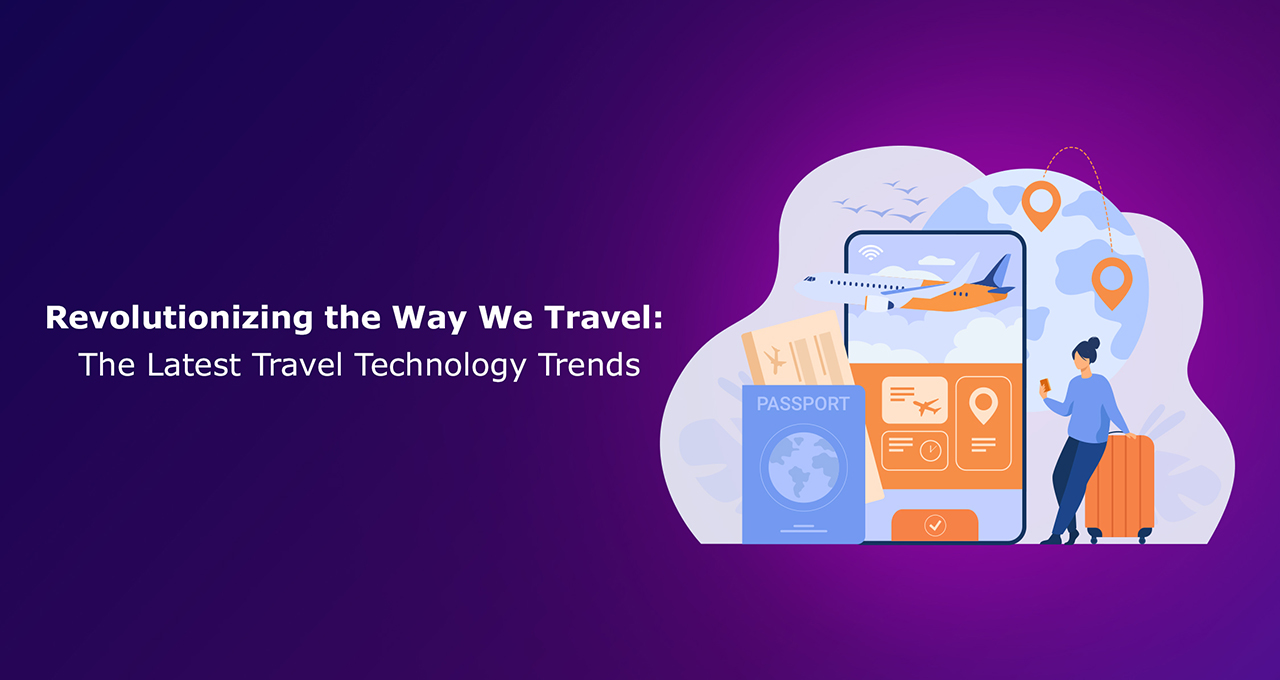
Image Credit: Image by pch.vector on Freepik
In today’s fast-paced and interconnected world, travel has become an integral part of our lives. Whether it’s for business or leisure, we are constantly on the move, exploring new destinations and immersing ourselves in different cultures. With the rapid advancement of technology, the way we travel has undergone a revolutionary transformation. From the moment we start planning our trip to the time we return home, travel technology has become an indispensable companion, making our journeys easier, more efficient, and more enjoyable.
The impact of technology on the travel industry
The travel industry has always been quick to embrace technological advancements, and it’s easy to see why. Technology has had a profound impact on every aspect of the travel industry, from the way we book our flights and accommodations to how we navigate unfamiliar cities and communicate with locals. The rise of the internet and mobile devices has made information more accessible than ever before, allowing travelers to research, plan, and book their trips with just a few clicks.
Furthermore, technology has also transformed the way travel companies operate. Online travel agencies have emerged as major players in the industry, offering a vast array of options and competitive prices. Moreover, social media platforms have become powerful marketing tools, enabling travel companies to reach a wider audience and engage with potential customers in a more personalized and interactive manner.
Current trends in travel technology
As technology continues to evolve at an unprecedented pace, new trends in travel technology are emerging, revolutionizing the way we experience the world. One of the most prominent trends is the rise of artificial intelligence (AI) and machine learning. These technologies are being used to develop chatbots and virtual assistants that can provide personalized recommendations and assistance throughout the travel journey. Whether it’s helping travelers find the best flight deals or suggesting local attractions based on their interests, AI-powered tools are enhancing the travel planning process and making it more convenient.
Another trend that is reshaping the travel industry is the Internet of Things (IoT). With the increasing number of connected devices, travelers can now enjoy a seamless and interconnected travel experience. Smart hotel rooms, for example, allow guests to control the lighting, temperature, and entertainment systems with their smartphones. Additionally, wearable technology such as smart watches and fitness trackers are providing travelers with real-time information about their health and well-being, helping them stay active and make the most of their trips.
Innovations in travel booking and planning
Gone are the days of sifting through piles of brochures and waiting in long queues to book a flight or hotel. Thanks to technology, travel booking and planning have become much simpler and more efficient. Online travel agencies and booking platforms have revolutionized the way we search for and reserve our travel arrangements. With just a few clicks, travelers can compare prices, read reviews, and secure their bookings, all from the comfort of their homes.
Moreover, mobile apps have become an essential tool for travelers on the go. These apps provide a wealth of information and features, allowing users to search for flights, book accommodations, and even find local restaurants and attractions. Additionally, travel planning apps can help create customized itineraries, suggesting the best routes and activities based on travelers’ preferences and time constraints.
The future of travel technology
As we look ahead, it’s clear that technology will continue to shape the future of the travel industry. One of the most exciting developments is the potential of virtual reality (VR) and augmented reality (AR) technologies. Imagine being able to explore a destination before even setting foot on it, or using AR glasses to receive real-time translations of signs and menus in foreign countries. These immersive technologies have the potential to completely transform the way we experience travel, making it more interactive and engaging than ever before.
Another area of innovation is blockchain technology. With its decentralized and transparent nature, blockchain has the potential to streamline processes such as booking and identity verification (eg. digital passports), while also enhancing security and reducing fraud. Additionally, blockchain can facilitate peer-to-peer transactions, allowing travelers to bypass traditional intermediaries and directly interact with service providers.
Technology and business travel
Business travel is another area where technology has had a significant impact. From virtual meetings and conference calls to expense management tools, technology has made business travel more efficient and cost-effective. Video conferencing tools, for example, have reduced the need for face-to-face meetings, saving time and resources. Similarly, mobile apps and online platforms have simplified the process of managing travel expenses, allowing employees to easily submit receipts and track their spending.
Furthermore, technology has enabled the rise of the digital nomad, individuals who can work remotely while traveling the world. With the right tools and connectivity, professionals can maintain their productivity and stay connected with their colleagues and clients, regardless of their location. This trend is redefining the concept of work-life balance and opening up new possibilities for both businesses and employees.
The role of technology in enhancing the travel experience
Technology has not only made travel more convenient but has also enhanced the overall travel experience. For instance, travel apps and websites provide travelers with access to a wealth of information, from destination guides and local recommendations to user-generated reviews. This abundance of information allows travelers to make more informed decisions, ensuring that their travel experience is tailored to their preferences and interests.
Moreover, technology has made it easier for travelers to stay connected with their loved ones while abroad. With the widespread availability of Wi-Fi and the rise of messaging apps and social media platforms, travelers can instantly share their experiences and photos with friends and family back home. This real-time connection helps to bridge the distance and create a sense of belonging, even when thousands of miles apart.
Benefits of technology in the tourism industry
The benefits of technology in the tourism industry are far-reaching. From a business perspective, technology has allowed travel companies to streamline their operations, reduce costs, and reach a wider audience. Online booking platforms have eliminated the need for physical storefronts, while digital marketing strategies have enabled targeted advertising and personalized messaging.
For travelers, technology has made travel more accessible and affordable. The ability to compare prices, read reviews, and book accommodations online has empowered travelers to make informed decisions and find the best deals. Additionally, technology has opened up new possibilities for solo travelers, allowing them to navigate unfamiliar cities and connect with locals through language translation apps and social networking platforms.
Conclusion: Embracing the future of travel technology
As we embrace the future of travel technology, it’s important to recognize its potential to revolutionize the way we experience the world. From AI-powered personal assistants’ to immersive virtual reality experiences, technology has the power to enhance every aspect of the travel journey. However, it’s essential to strike a balance between embracing technology and preserving the human touch that makes travel so special.
By leveraging the latest travel technology trends, travel companies can provide more personalized and seamless experiences for their customers. Likewise, travelers can take advantage of the convenience and accessibility that technology offers, while still embracing the spontaneity and serendipity that travel brings. Ultimately, the future of travel lies in harnessing the power of technology to create meaningful connections and unforgettable experiences. So, let’s embrace the possibilities and embark on a journey to a future where travel is truly revolutionized.
At GoPhygital, we specialize in creating bespoke solutions that meet your specific requirements. Let us help you bring your idea to life. You can reach out to us here.

